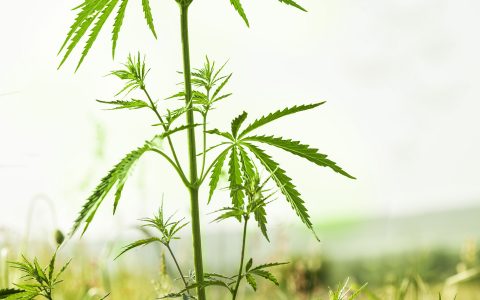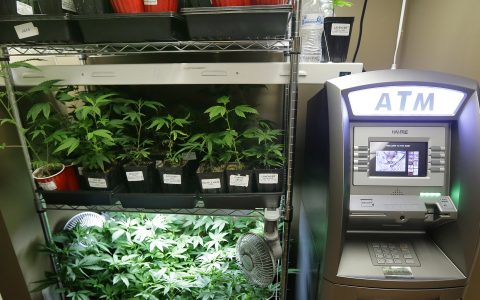Colorado Cannabis Market Funds Busts of Illegal Growers
DENVER (AP) — The first leisure cannabis market within the U.S. notched one other marijuana first Thursday when Colorado began utilizing marijuana taxes to fund police efforts to crack down on unlawful rising operations.
A measure signed into legislation by Gov. John Hickenlooper units apart almost $6 million a yr in Colorado marijuana tax income to reimburse police for investigating black-market marijuana exercise that authorities say has elevated because the state legalized leisure marijuana in 2012.
“We don’t people to say they’re trying to grow for medical purposes, or licensed recreational uses, and instead they’re shipping it out of state,” Hickenlooper mentioned.
The fund was backed by police teams who complain that marijuana legalization has attracted illicit marijuana growers together with authorized ones.
The invoice was additionally backed by Colorado’s nascent marijuana business amid complaints that unlawful rising operations undercut costs of cannabis grown legally and provides legalization a nasty title.
Oregon units apart 20 % of its cannabis taxes for “local law enforcement” in cities and counties, plus one other 15 % for state police. But Oregon doesn't direct police to make use of that cash to research black-market operations.
Colorado’s fund is the primary in any state designated to particularly fight the black market. Colorado gave legislation enforcement about $1.7 million final yr for different marijuana-related enforcement actions, comparable to coaching officers to identify stoned drivers.
The black-market grants are geared toward rural communities, the place there could also be no dispensaries and no native tax profit from legalization.
Rural communities have additionally attracted some high-profile illicit drug operators accused of attempting to use Colorado’s cannabis legislation to supply marijuana on the market out of state. The small cities the place this has occurred have restricted police assets and their officers have mentioned they can not thorough examine some sprawling marijuana rising operations.
“An investigation like this can be very time-consuming and expensive,” mentioned Michael Phibbs, head of the Colorado Association of Chiefs of Police.
The U.S. authorities allowed Colorado’s marijuana legalization experiment on the situation that state officers act to forestall marijuana from migrating to different states the place it's nonetheless outlawed and be certain that legal cartels are stored out of the rising enterprise.
Sen. Irene Aguilar
The business acknowledges the legal exercise and insists it's doing all it might probably to ban legally grown cannabis from crossing state traces. Among different safeguards, Colorado legislation requires growers to get licenses and use a “seed-to-sale” monitoring system that screens marijuana vegetation from when they're grown to when the completed product is offered in stores.
“The black market certainly hurts the regulated industry,” mentioned Kevin Gallagher, head of the Cannabis Business Alliance, a Colorado group representing the sector.
A dozen raids throughout southeast Colorado in 2016 led federal authorities to grab greater than 22,000 kilos (10,000 kilograms) of marijuana they mentioned had been supposed for out-of-state sale.
There have been debates in some states over racial disparities in drug arrests after legalization. But the Colorado invoice’s sponsor mentioned the additional funding for police just isn't meant to jail extra folks. Instead, it's geared toward serving to rural areas sick geared up to research doable multinational drug operations, she mentioned.
In Colorado, “to my knowledge there is no evidence that illegal growing disproportionately affects minority communities,” mentioned Sen. Irene Aguilar, a Denver Democrat who sponsored the invoice.
Hickenlooper was additionally scheduled to signal a invoice Thursday that limits the quantity of marijuana that may be grown in most houses to 12 marijuana vegetation irrespective of how many individuals could be residing there. Current state legislation permits adults over 21 to own six vegetation every and extra if medical doctors suggest the next plant depend.
The 12-plant residential restrict is already required by native zoning legal guidelines in most of Colorado’s bigger communities, together with Denver. That makes it unclear how many individuals can be affected by the statewide restrict. The statewide restrict takes impact in 2018.

Colorado Cannabis Market Funds Busts of Illegal Growers



Comments
Post a Comment